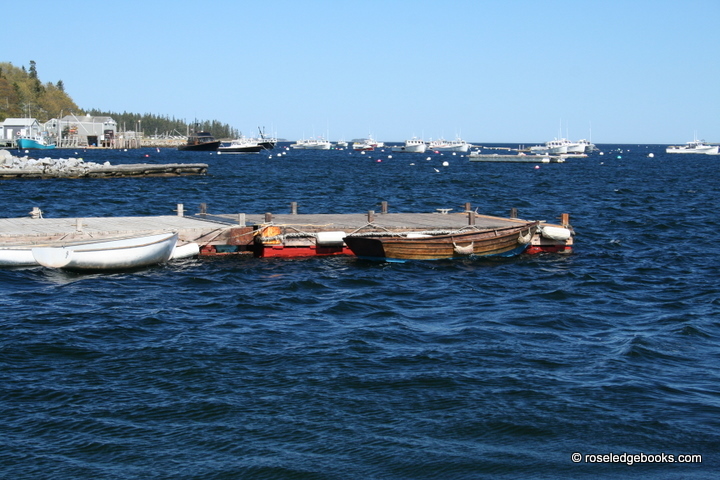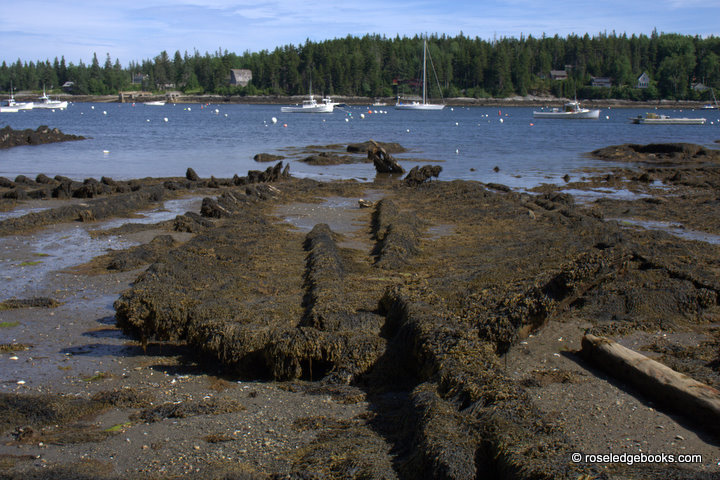The annual surge of gift-giving is upon us, and what better gift to give than a book which says, “I still know who you are”?
For that friend interested in Manhattan’s water supply, the best RB choices were E. L. Doctorow’s novel, Waterworks, which is already known to many and only tangentially about NYC’s water, or Christopher Fowler’s mystery, The Water Room which is about London’s water supply which may be a minus but which features aging, really aging, detectives Bryant and May which is a plus.
But then comes David Soll’s Empire of Water about guess what? The subtitle tells it all: An Environmental and Political History of The New York City Water Supply. RB won’t have this, as it is not — and may never be — available in paperback. Cross your fingers that although the author is an academic (rarely in paperback), the book will be sufficiently generally interesting as well as “impressive” and “first rate environmental history.” to appeal to a big enough audience.
As a “best guess” NYC water alternative, RB suggests Russell Shorto’s Island at the Center of the World because this history of Dutch settlement in very early New York City (then called New Amsterdam) surely includes, for water-sensitive readers, pertinent deliberations and actions from these people who had lived long under water’s threat. But RB is only guessing. “Test” the book before giving it away and let me know. Other significant points: it was well-reviewed and mentions the old Dutch family name — which I’ve forgotten — of a Roseledge Books Regular. A link is a link for all that.
*****
For the friend, mother, or strange person at work whose book club reads only Nobel prize winners, how about new Nobelist Alice Munro’s Dear Life, her latest collection of always special short stories which include several that may be almost autobiographical?
*****
For the mediator in Frankfurt, Germany, who believes that a good starting point is to read with mediatees a novel or, gasp! a mystery, that addresses the issues to be mediated, RB recommends Jakob Arjouni’s Brother Kemal, the last in the series with a private eye who is a self-aware German Turk and, though indifferent to politics, is usually in the thick of “hot-button issues” like racism, eco-terrorism, immigration, militant Islam. Perfect. How better to start a discussion of differences among people who don’t know each other than to argue about a book everyone has read? RB will have this one and others of the series as they are translated into English.
*****
*****
For that older, much-loved person who is slowly drawing away from you, Roseledge Books suggests two types of books: paintings which may evoke memories you share or short writings which do not need a reader to remember in order to continue and enjoy.
For a book of paintings (and few words) RB suggests Arnold Skolnick’s and Carl Little’s Paintings of Maine with its pictures that offer generalized memories in vivid color of maybe familiar geography. For a book of short, discrete pieces by someone generally good-natured and wise, RB suggests E.B. White’s One Man’s Meat (essays about Maine) or Helene Hanff’s 84 Charing Cross Road (letters about buying books). For a happy combination of words and pictures, RB suggests Maira Kalman’s And the Pursuit of Happiness (adventures in learning about democracy in action which are more fun than that sounds).
*****
For the landlocked snowbird who is water-deprived and has learned from summers in Maine to care about how water figures into the workings of the world (yes, it is I), RB notes that Rose George’s Ninety Percent of Everything has arrived just in time. It is about shipping, and therefore globalization, and opens up the mostly ignored and treacherous world of seafaring, ocean-going, and whatever else one says to discuss waterways as travel routes. Here in soon-to-be snowy Minnesota, I need a dose of ocean about now, and this book would do it — if it were in paperback, which it is not. Aaarghhh.
But it probably will be eventually. Until then Roseledge Books will have Rose George’s earlier good one, The Big Necessity, which is about poop (she said delicately), is already in paperback, a little about water and authored by someone named Rose — all pluses. I’ll “test” it, then send it to my brother-in-law who is landlocked in NY and has been cleaning up the water of the Hudson River for years. Exchanging thusly “used” books is a longstanding family tradition which I love.
More suggestions coming.




Colleen: How did you know (I withdraw the question–you’re psychic) that UNC’s pan-campus theme is “Water in Our World”? So popular that the 2-year program was extended for a 3rd year: http://www.unc.edu/news/FYI/2012/04/
I love to think about Christmas book-buying and love to read your ever astute picks. It’s almost like one of my other favorite things: standing in Roseledge, of an early evening, perusing the shelves and looking out over the harbor, while enjoying your commentary on each book from across the room.
Can’t wait ’til the next time, Dana